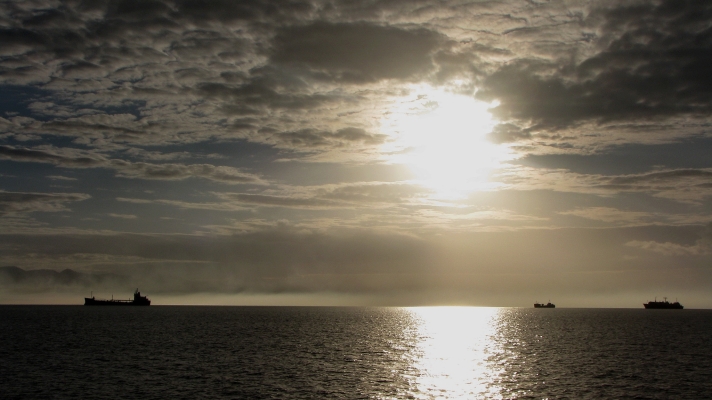The European Commission wants the shipping industry to make a substantial contribution to reducing CO2 emissions in Europe. To achieve this, the European Emissions Trading Scheme will be expanded. This is much to the displeasure of the International Chamber of Shipping, which considers it an ‘overreach’ that threatens to undermine decarbonisation efforts.
European Commission vice-president Frans Timmermans revealed the proposals that are part of a mega package of measures to combat climate change. Besides shipping, the measures also apply to aviation, road transport and the ‘built environment’.
The European Emissions Trading Scheme (ETS) was introduced in 2005 and, according to the committee, has since reduced harmful emissions from energy-intensive industries and energy companies by 42.6 per cent. That is not enough to achieve the agreed 55 per cent reduction in CO2 emissions in the EU by 2030 compared to 1990.
Also read: ‘Consumer will pay for Trump-like European shipping policy’
According to Timmermans, the emission of greenhouse gases in transport is even increasing and that sector therefore needs to be tackled. ‘We choose the ETS because it taxes the suppliers, the Shells and Totals of this world.’ Other sectors that are currently exempt from CO2 rights, such as the cement industry, will now also be affected.
Emissions trading, shore power and alternative fuels
Shipping will be included in the existing ETS. This concerns larger ships that sail within the European Economic Area (EU plus Norway, Iceland and Liechtenstein) and the system will also apply to fifty per cent of transport to and from the EU to other countries.
An Alternative Fuels Infrastructure Regulation will also be introduced. This will require that ships and aircraft have access to clean electricity supply in major ports and airports. In addition, the FuelEU Maritime Initiative will stimulate the uptake of sustainable maritime fuels and zero-emission technologies by setting a maximum limit on the greenhouse gas content of energy used by ships calling at European ports.
Also read: European Parliament wants roadmap for zero-emission shipping by 2050
ETS
The ETS works roughly as follows. Each year, the maximum greenhouse gas emissions are set for the participants. Companies have to buy the right to emit a tonne of CO2. When a company emits more than it has rights to, it has to buy rights, but if it emits less, it can sell them.
The commission also wants to introduce a carbon tax ‘at the border’ for companies that buy products from countries with less strict environmental requirements. That instrument will be evaluated in 2026. Sectors that currently have free allowances but are protected by this new tax will lose their exemptions.
ICS advocates global fuel levy
Guy Platten, secretary general of the International Chamber of Shipping (ICS) called the plans ‘an ideological revenue raising exercise’, which fails to actually reduce CO2. He says that ‘the proposal only covers about 7.5 per cent of shipping’s global emissions. This could seriously put back climate negotiations for the remaining 92.5 per cent of shipping emissions.’
He fears ‘unintended consequences’ and says that there are more effective options, such as a global fuel levy. Platten: ‘But these require political leadership rather than political expediency. Another key issue for ICS is that who pays for the cost of fuel should be the same person that ultimately pays the cost of carbon allowances.’
He also criticises that investment in research and development is lacking in the proposals as emission reduction will only be possible ‘with the development of technologies that do not currently exist’. He warns that the proposed system ‘also sends a message beyond shipping that political and investment risk is high in Europe.’
Platten goes on by stating the proposal is ‘overly bureaucratic’. ‘Volatility in the price of allowances makes this approach far more complicated to pass on the cost to the company that pays for the fuel, especially for the majority of smaller shipping companies which make up the majority of shipping. The industry’s overwhelming preference is for a global levy which will incentivise real emission reductions rather than red tape.’
‘It is clear that there will need to be an independent impact assessment of these proposals as soon as possible, to ensure that we are not sleepwalking towards unmanageable costs for global trade. We need urgent action, but action must result in decarbonisation rather than a pure money grab,’ Platten concludes. ICS will highlight its concerns in discussions with the EU Council and the European Parliament.
Also read: EU heading for rigorous CO2 reduction for shipping
Source (in part): ANP
[newsletter_form title=”Would you like to receive the free newsletter of SWZ|Maritime? Please fill in your e-mail address here:”]








